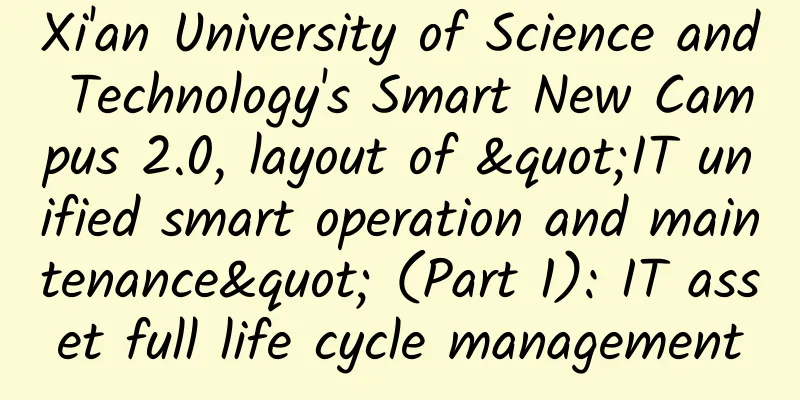Bubble or opportunity? 2016 Enterprise IT Market Innovative Technology Application Survey Report

|
The four major innovative technologies of Internet of Things, 3D printing, virtual reality and artificial intelligence are undoubtedly the hottest "hotshots" in the IT industry. Reports from many consulting firms, including PricewaterhouseCoopers, believe that they are disruptive technologies that can change the future. But after many rounds of hype, how do companies view these disruptive technologies? Which technologies do companies value most, and how do they plan their innovative technology applications? The following is a survey of 560 IT experts around the world by Spiceworks. The enterprise market prospects of the four major innovative technologies: 1. Among the four major innovative technologies, enterprise IT experts are most optimistic about the Internet of Things and artificial intelligence. 2. Although many IT experts see the potential of VR and 3D printing, they do not believe that these technologies will be widely used in the enterprise market. 3. Compared with 3D printing and virtual reality, companies are more concerned about the security/privacy issues of artificial intelligence and the Internet of Things. 90% of respondents believe that security and privacy are the issues that need to be addressed first. 4. Enterprise IT experts are looking forward to the emergence of true leading companies in the Internet of Things, artificial intelligence, virtual reality VR and 3D printing markets. Innovative technology enterprise application trends: Internet of Things is the best choice for enterprise IT managers Although IoT security incidents occur frequently, IoT technology is still the hottest innovative technology in the enterprise IT market. 20% of IT experts said that IoT technology has been deployed in their enterprises, and 41% said that they will deploy this technology in the future. 3D printing, which ranked second, has been deployed by 10% of the surveyed enterprises, and 11% plan to deploy it in the future. Virtual reality and artificial intelligence, which ranked third, have only been deployed by 7% and 3% of enterprises respectively, but as many as 23% of enterprises said that they will deploy artificial intelligence technology in the future, which is much higher than the 13% of virtual reality. (Figure above) Different industries have serious divergence in their demands for innovative technologies The 3D printing deployment rate (45%) and VR deployment rate (13%) in the education industry are significantly higher than those in other industries. The healthcare industry has the highest IoT deployment rate (28%), surpassing all other industries. The demand for AI in IT-related industries such as IT services, software, and telecommunications is ***. Industries such as manufacturing, architecture and engineering have seen high deployment of 3D printing, while the use of VR is expected to soar as demand for new projects increases. |
<<: New challenges for the telecommunications industry in 2017: Progress in 5G and fiber deployment
Recommend
Justhost offers 30% off, 24 data centers available in Hong Kong, Russia, the United States, Singapore, etc.
Received a promotional email from Justhost.ru. Fr...
DiyVM: Hong Kong CN2/US CN2 unlimited traffic VPS monthly payment starts from 50 yuan, Hong Kong server monthly payment starts from 499 yuan
Next, let me share some information about DiyVM, ...
Under the epidemic, IDC companies have no right to complain
At present, with the effective and orderly implem...
Why you don't understand HTTPS
I wrote an article about HTTPS the day before yes...
In the next generation technological revolution, the Internet of Things, who will play the role of “vanguard”?
The Internet of Things (IoT) is widely regarded b...
Principles of nine cross-domain implementation methods (full version)
[Original article from 51CTO.com] Cross-domain re...
5G accelerates cloud-network integration
What is cloud computing? Different companies have...
How to identify fiber link problems?
Methods for Identifying Fiber Link Problems There...
Follow WeChat! Weibo launches new emojis: they can also “split”
Weibo and WeChat are two well-known social platfo...
AkkoCloud Germany CN2 GIA is online, KVM architecture, native IP, annual payment starts from 299 yuan
However, I shared information about AkkoCloud at ...
Focusing on intelligent network connectivity and IoT innovation, H3C made a stunning appearance at the 2019 World Internet of Things Expo
[51CTO.com original article] On September 7, the ...
Although there are nearly 100 5G terminals, they are not even the tip of the iceberg.
The quantity, quality and speed of mobile termina...
How to achieve end-to-end network slicing?
GPP defines network slicing as one of the main fu...
It is an inevitable trend to open up the 6GHz spectrum to 5G in the future
At the 7th Asia-Pacific Spectrum Management Confe...
What technologies and applications do 5G and the Internet of Things have in the World Cup?
Recently, the most exciting things are the comple...









